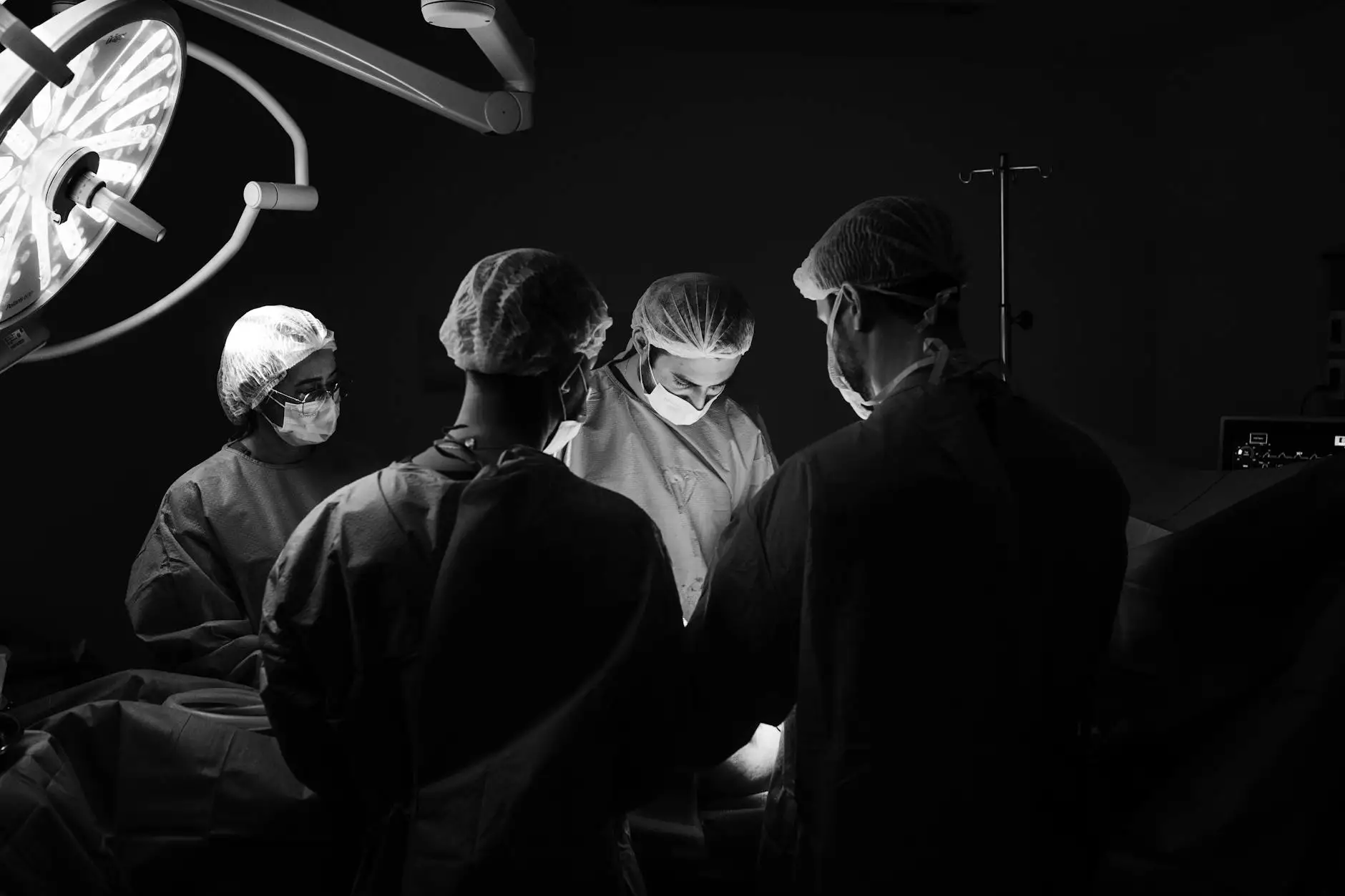The Role of a **Lung Surgery Specialist** in Modern Healthcare

In today's medical landscape, understanding the significance of a lung surgery specialist is vital for anyone facing pulmonary health issues. From minimally invasive procedures to complex surgeries, these professionals are at the forefront of advancing lung health and providing patients with the care they deserve. This article will provide a comprehensive overview of the field of lung surgery, the qualifications of specialists, the types of procedures they perform, and patient outcomes.
Understanding the Qualifications of a Lung Surgery Specialist
A lung surgery specialist is typically a surgeon with extensive training in thoracic surgery. This includes:
- Educational Background: Typically, a specialist must complete medical school, followed by a residency in general surgery, and then a fellowship in thoracic or pulmonary surgery.
- Board Certification: Most specialists obtain board certification, which signifies that they have passed rigorous exams and have demonstrated their commitment to the field.
- Continuing Education: Staying abreast of the latest technological advancements and surgical techniques through ongoing education is essential.
These qualifications ensure that surgeons are equipped to handle the complexities of lung health and provide high-quality care to their patients.
Common Conditions Treated by a Lung Surgery Specialist
A lung surgery specialist treats a wide variety of conditions, including but not limited to:
- Lung Cancer: Surgical options include lobectomy, pneumonectomy, and wedge resections.
- Chronic Obstructive Pulmonary Disease (COPD): Procedures such as lung volume reduction surgery may be recommended.
- Pleural Disease: Conditions affecting the pleura can be treated through thoracotomy or video-assisted thoracoscopic surgery (VATS).
- Interstitial Lung Disease: In certain cases, lung surgeries may help relieve symptoms or manage disease.
- Infections: Severe lung infections may necessitate surgical intervention, especially if abscesses form.
By addressing these conditions, a lung surgery specialist plays a crucial role in improving patient outcomes and enhancing quality of life.
Innovative Surgical Techniques in Lung Surgery
Advancements in technology have vastly improved surgical procedures and patient recovery times. Some innovative techniques include:
1. Minimally Invasive Surgery
Minimally invasive techniques, such as VATS or robotic-assisted surgery, allow for smaller incisions, less pain, and quicker recovery. Benefits of these methods include:
- Shorter Hospital Stays: Many patients can go home within a day or two.
- Reduced Scarring: Smaller incisions lead to less visible scars.
- Faster Recovery Times: Patients often resume regular activities sooner.
2. Advanced Imaging Techniques
Modern imaging technology assists surgeons in accurately diagnosing and planning surgeries. Techniques such as:
- Computed Tomography (CT) Scans: Provide detailed images of lung structure.
- Positron Emission Tomography (PET) Scans: Useful in determining cancer spread.
- Magnetic Resonance Imaging (MRI): Helps assess tumors and other lung problems.
These imaging techniques are critical in ensuring precision and successful outcomes during surgery.
The Patient Experience: From Consultation to Recovery
Initial Consultation
The journey begins with a thorough consultation with the lung surgery specialist. This includes:
- Medical History Review: Understanding past health issues is vital.
- Physical Examination: A detailed examination to assess lung function.
- Discussing Symptoms: Patients should articulate their symptoms clearly for proper evaluation.
- Explaining Risks and Benefits: The specialist discusses potential outcomes and any associated risks.
Pre-Operative Preparation
Once surgery is deemed necessary, several steps need to take place before the operation:
- Pre-Surgical Testing: Tests like blood work and imaging studies are performed.
- Medication Management: Adjusting medications is essential, especially anticoagulants.
- Pre-Operative Counseling: Patients are educated about what to expect during the surgery and recovery.
Post-Operative Care
Following surgery, recovery is critical for successful outcomes. A lung surgery specialist ensures that:
- Monitoring: Patients are closely monitored for complications like infections.
- Pain Management: Effective pain control strategies are implemented.
- Rehabilitation: A pulmonary rehabilitation program may be recommended to restore lung function.
The Importance of Follow-Up Care
After a surgical procedure, follow-up care is crucial for a successful recovery. The lung surgery specialist plays a pivotal role in:
- Regular Assessments: Evaluating the recovery process and lung function.
- Detecting Recurrences: Continuous monitoring helps in early detection of potential issues.
- Patient Education: Teaching patients about lifestyle changes and preventive measures.
Supportive Resources for Patients
Many resources are available to assist patients before and after surgery:
- Support Groups: Connecting with others facing similar challenges can provide emotional support.
- Rehabilitation Programs: Tailored programs to improve lung function and fitness.
- Educational Materials: Books, brochures, and online resources that provide information on lung health.
Conclusion: The Future of Lung Surgery
The field of lung surgery is rapidly evolving, with innovations aimed at improving patient care and outcomes. A lung surgery specialist not only excels in performing intricate surgical procedures but also adopts a holistic approach to patient health. This encompasses understanding medical history, utilizing cutting-edge technology, and providing comprehensive post-operative care. The commitment of specialists, such as those at Neumar Surgery, ensures that patients receive the highest quality of care tailored to their individual needs.
Awareness and education play significant roles in lung health management. By understanding the function and importance of a lung surgery specialist, patients can take proactive steps toward maintaining their lung health and effectively addressing any issues that arise. With advancements in medical science and compassionate care from specialists, there is hope and improved quality of life for those with lung conditions.









